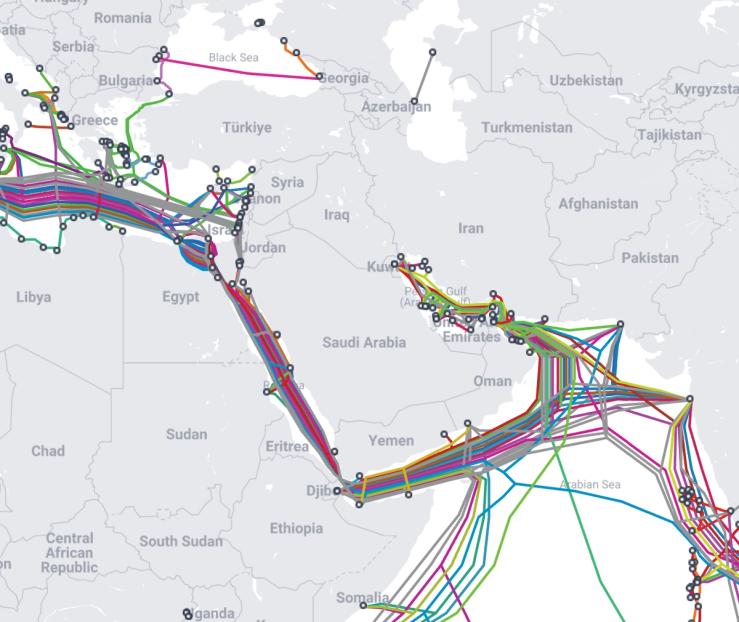The Scoop
Saudi Arabia and Syria are in talks to build data cables connecting the kingdom to Europe, a move seen as a crucial part of Riyadh’s plan to become a global artificial intelligence hub. Syria plans to award the project this month.
Saudi Arabia’s biggest telecommunications firm is one of the short-listed bidders for Syria’s so-called SilkLink project, which would allow data to bypass the Red Sea, currently the main route for internet traffic between the Middle East, Europe, and the US, people familiar with the matter told Semafor.
The project would also provide a significant economic boost to the war-ravaged Syrian economy — and outdated domestic internet connectivity — with investments totalling as much as $500 million and recurring revenue from operating the lines, the people said.
“We are in the last stretch before choosing a partner for SilkLink,” Abdulsalam Haykal, Syria’s minister of telecommunication and information technology, said in an interview. He added that five companies had submitted proposals including Saudi Telecom Co. (STC), as well as consortiums backed by Jordanian, Kuwaiti, Omani, and UAE firms.
Haykal met his Saudi counterpart in Riyadh earlier this year to discuss the idea, the people said, and state-controlled STC was involved in the talks and could be the firm that builds and owns the data cables.
In this article:
Know More
Having the option to bypass the Red Sea has become more urgent after repeated failures of submarine cables. One outage in September, after several cables were cut without explanation, disrupted internet access in the Middle East and Asia for days.
“We have access to the Mediterranean, and can be a gateway for many countries like Saudi Arabia and others in the Gulf to provide the diversity that hyperscalers need because of the concentration of so much traffic between Europe and Asia passing through the Red Sea,” Haykal told Semafor.
Routing data cables through Jordan and Syria will also reduce latency and offers the kingdom an alternative to connecting to Europe through Israel, with which Riyadh still does not have formal diplomatic relations.
Matthew’s view
As Saudi Arabia seeks to diversify its economy beyond oil, data is becoming its next strategic resource. The kingdom is pitching itself as a low-cost AI hub, leveraging abundant land and cheap energy to attract global companies building data centers and AI applications.
Riyadh has already struck deals with Qualcomm, Nvidia, Groq, and Amazon Web Services to supply AI chips and develop compute capacity. But the plan’s success depends on building high-speed, reliable links to the rest of the world, mirroring the vast infrastructure that transports its crude globally.
Syrian President Ahmed Al-Sharaa, speaking last week at the Future Investment Initiative conference in Riyadh, noted his country’s geographic position as an important logistical node in transferring goods and energy from the Gulf to Europe, and vice versa. The interim government in Damascus is pitching itself as a destination for investment, not aid, and aims to attract tens of billions of dollars to rebuild the country, much of it from the Gulf, he said.
Notable
- Saudi Arabia’s AI ambitions are a sign of the Gulf’s emergence as a swing region in the global tech race and US-China competition, writes Mohammed Soliman in a recent Middle East Institute report.
- HUMAIN, the AI company established this year by the Saudi sovereign wealth fund, plans to make the kingdom the third largest AI infrastructure provider after the US and China.

